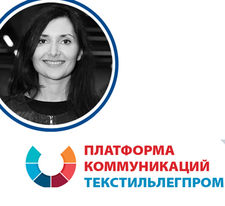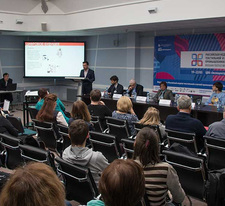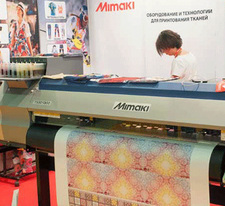From the digital Revolution to "ageism"
The end of the conversation about the impact of new technologies on working processes in the fashion industry with Maria Kelina, Senior Consultant, and Daria Tulubenskaya, partner of the company "Contact", InterSearch Russia.
Is there a difference, in terms of employment and development, between Western and domestic players? How does this affect the requirements for candidates?
MK: – Western and Russian companies cultivate different competencies – this is the main problem in the adaptation of candidates. Western players value partnership, compliance with work standards, as well as the ability to work in a matrix structure, which cannot be said about Russian companies, where the hierarchical system is still more widespread. Hence the requirements for the competencies of candidates in domestic companies: a more authoritarian management style, tough leadership, consistency.
Etc.: "In the conditions of crisis management, a hierarchical structure can be more effective, however, in order to generate new ideas, look for non-standard approaches, more and more companies are implementing the principles of holacracy.

– Are employers often willing to hire managers from other industries?
D.T.: There are more and more cross-industrial transitions in the market. If we talk about back-office positions (finance director, IT director, etc.), then this will not surprise anyone. But with front office positions, it's more difficult. Nevertheless, in almost 70% of cases we have to expand the initial pool of candidates at the expense of related industries. Of course, there may be difficulties in adaptation, but in order to minimize risks, it is worth making additional assessments at the entrance, competently prescribing an adaptation plan for a new employee, and assessing a person's competencies more deeply.
If we talk about the front line, then most often food retail, DIY, FMCG come into fashion.
Are companies interested in expats? Or do they prefer to hire Russian managers?
D.T.: – Companies are no longer ready to "outbid" expats, as it used to be. If a foreign specialist's contract ends, the employer tries to find him a similar expertise locally or to grow a strong HiPo by the end of the contract. For the most part, the Russian expats who managed to learn Russian and understand the specifics of the Russian market well, got a family, and settled in Russia, were able to "survive" on the market. Their motivation to stay is certainly higher.

– What difficulties can be identified in the market of top-level applicants?
MK: – Now more and more often when searching for candidates, «hunting» is needed – very few specialists are in open search. Sometimes candidates who have worked in the same company for 10–12 years or more enter the market. They face the difficulty of presenting themselves competently, «sell » to the employer.
Have there been any changes in the last 1–2 years in terms of the level of salaries of managers?
MK: Salaries in the industry have not fallen: good and valuable personnel are still in great short supply and are well paid. We can talk about two strengthened trends: firstly, a significant part of the income has passed into a variable bonus component, and secondly, employers are less willing to outbid a candidate, giving him 40% or more of an increase in salary.
D.T.: – To get a significant increase in income, you will need to prove what value you will bring to the company. And since the result may not be visible for at least a year, the employer in most cases tries to negotiate with a top manager to compensate for the difference due to long-term motivation.
It should also be noted that money is, of course, an important factor, but today in the first place for top managers are interesting digitized tasks, the identity of the owner or CEO, the stability of the company (which is especially important lately), and only then the material part.
– Summing up, what recommendations can be given to applicants?
MK: – Probably the main recommendation – is to leave over-waiting, which candidates broadcast during the transition. Now there is practically no company where you can grow with the market or go with the flow. You have to fight for every percentage of operating profit. They say correctly: if you want a different result, you should act differently. In order for your experience to continue to be highly valued among employers, you need to be able to change, question traditional approaches and show high engagement every day. Nowadays, people who care are valued.
Well, besides, even if you are not looking for a job right now, prepare the ground in advance– join professional communities, establish networking, communicate with relevant agencies. All this increases the awareness of your personal brand and will greatly help in the future if you enter the job market.
Photo: shutterstock











